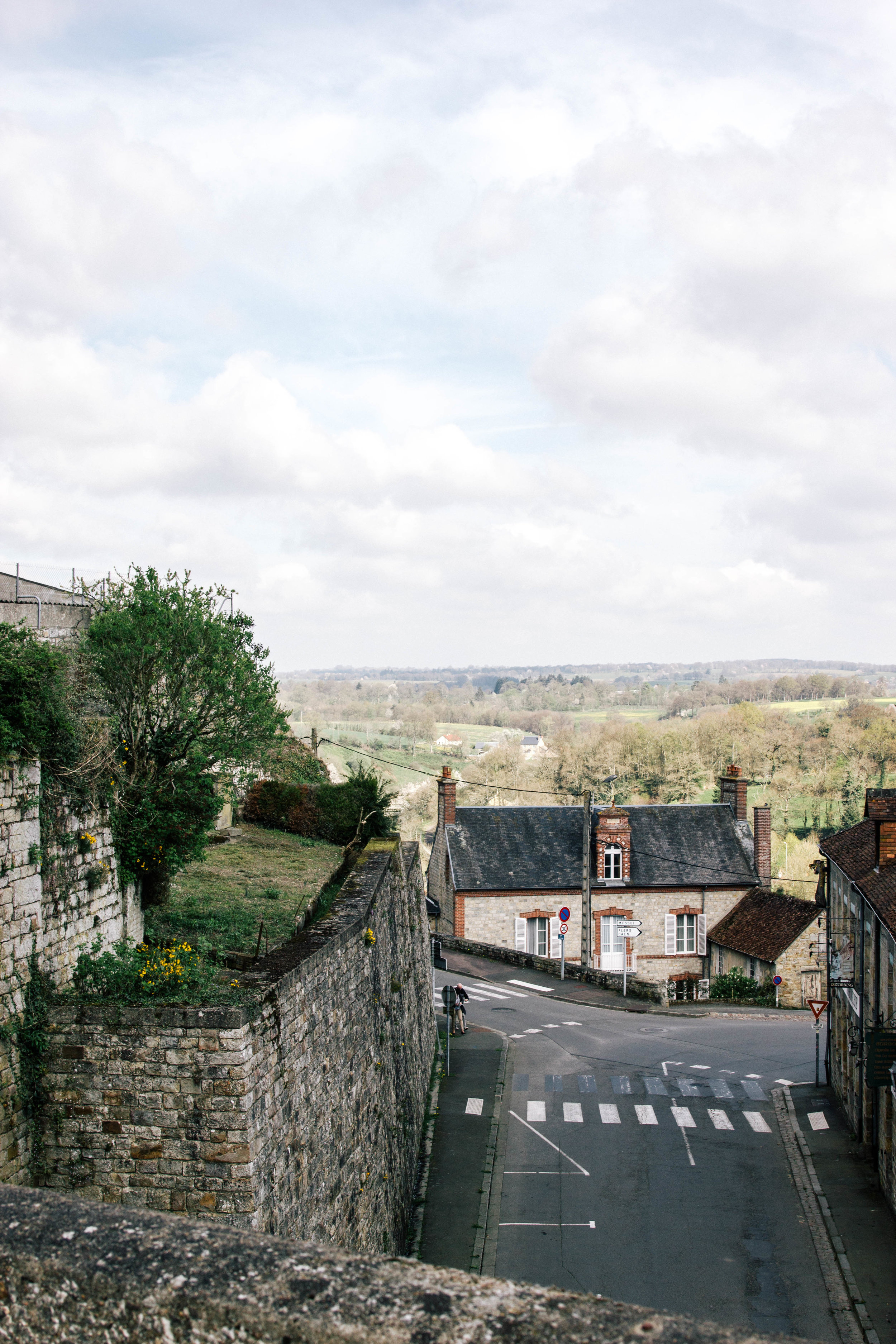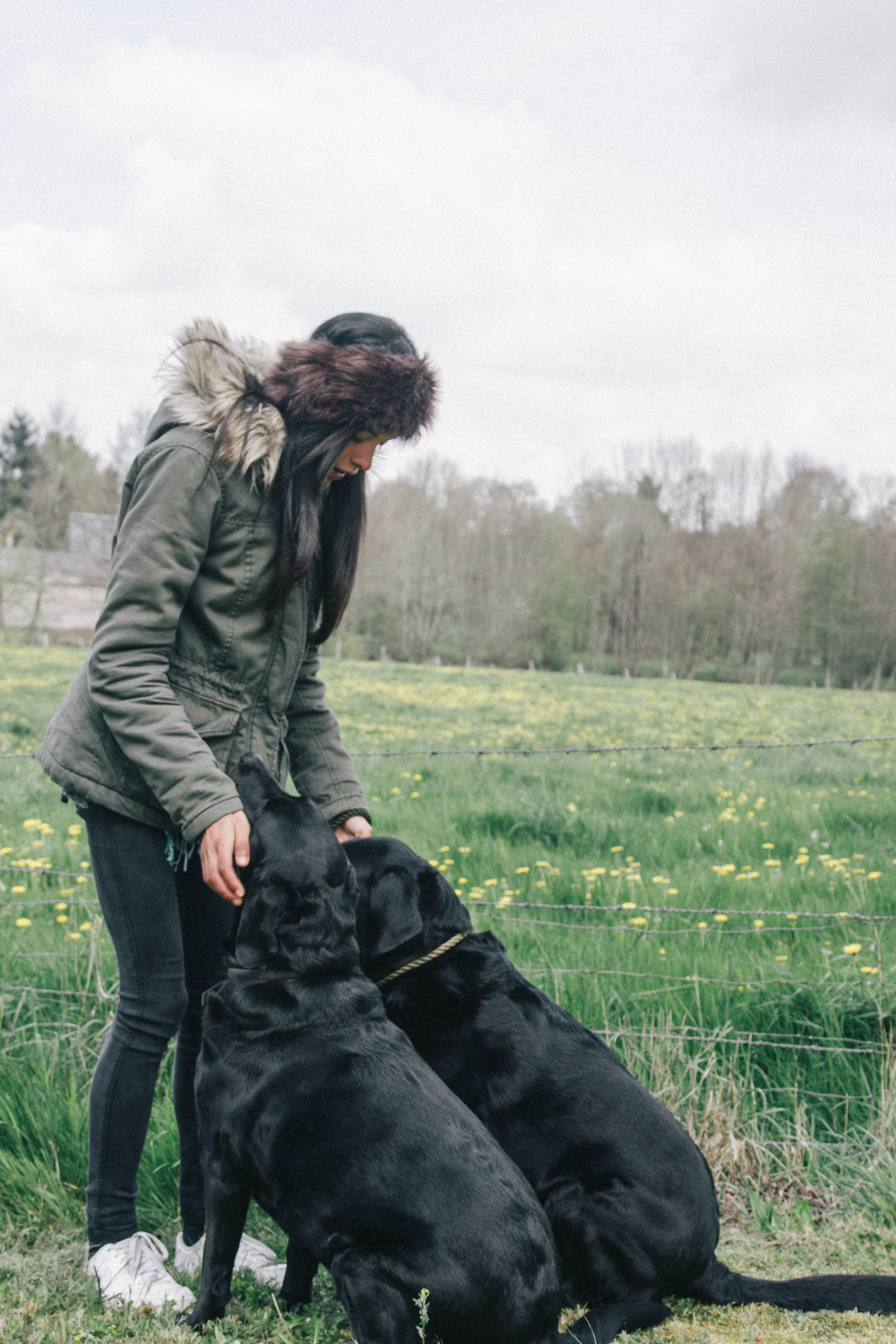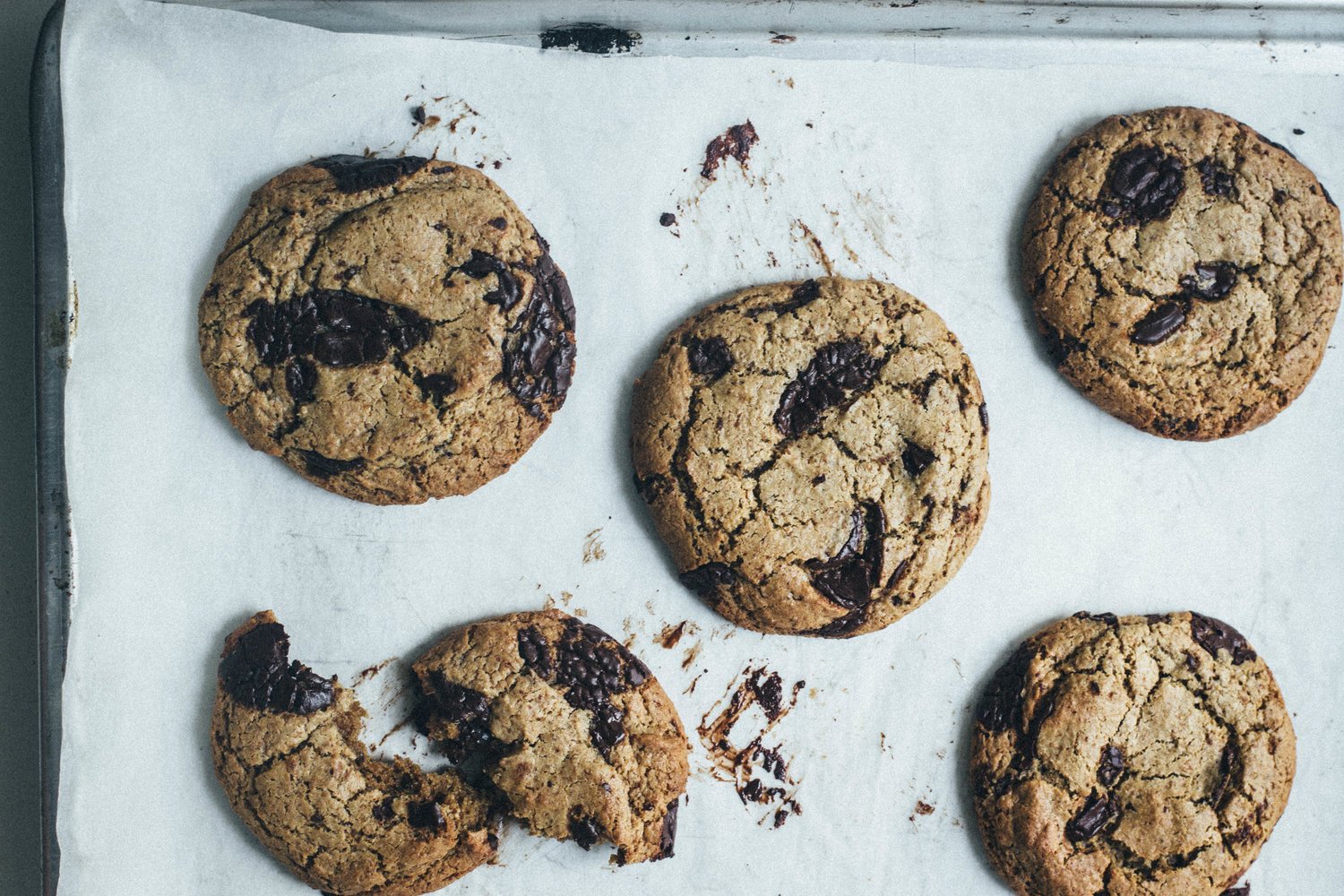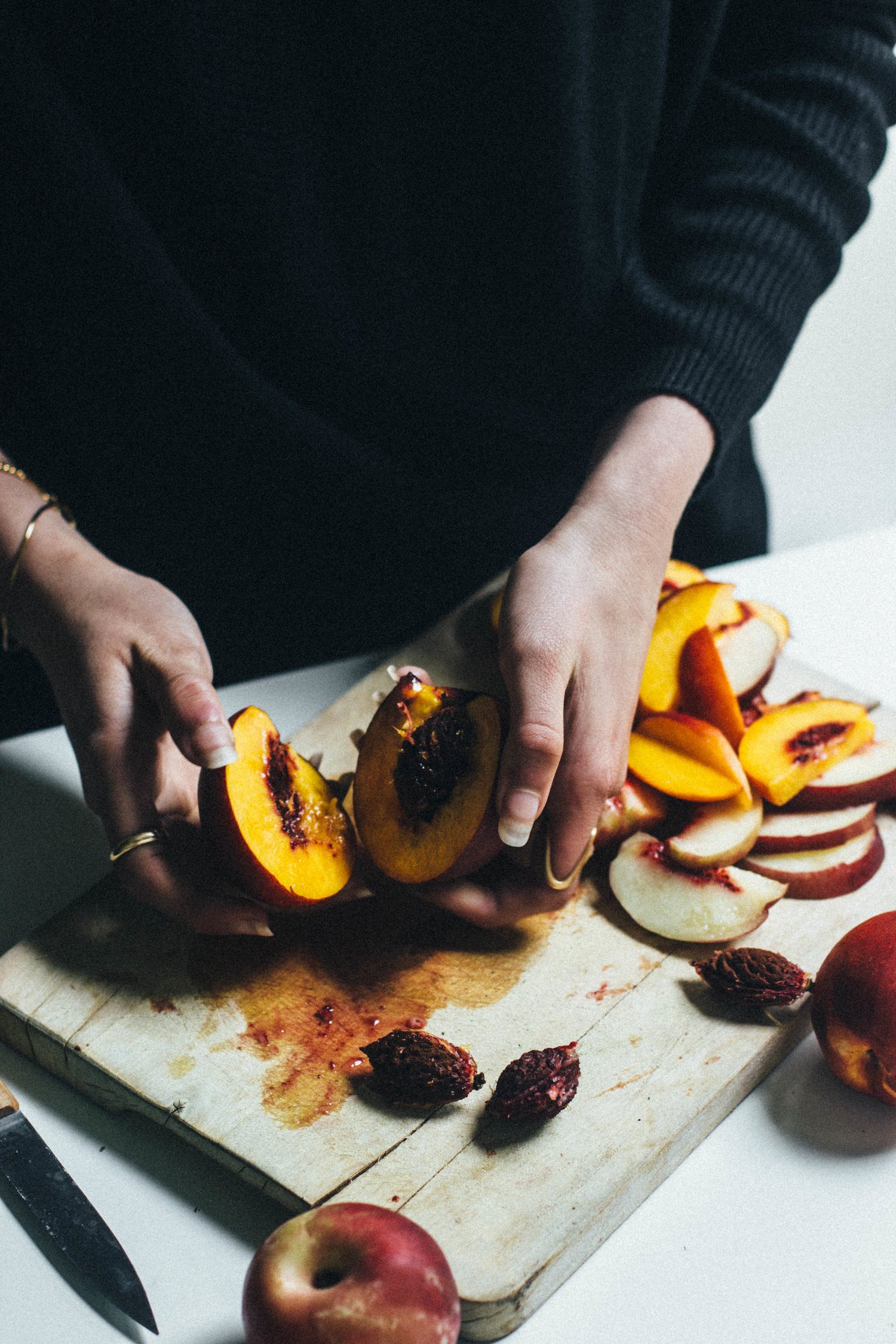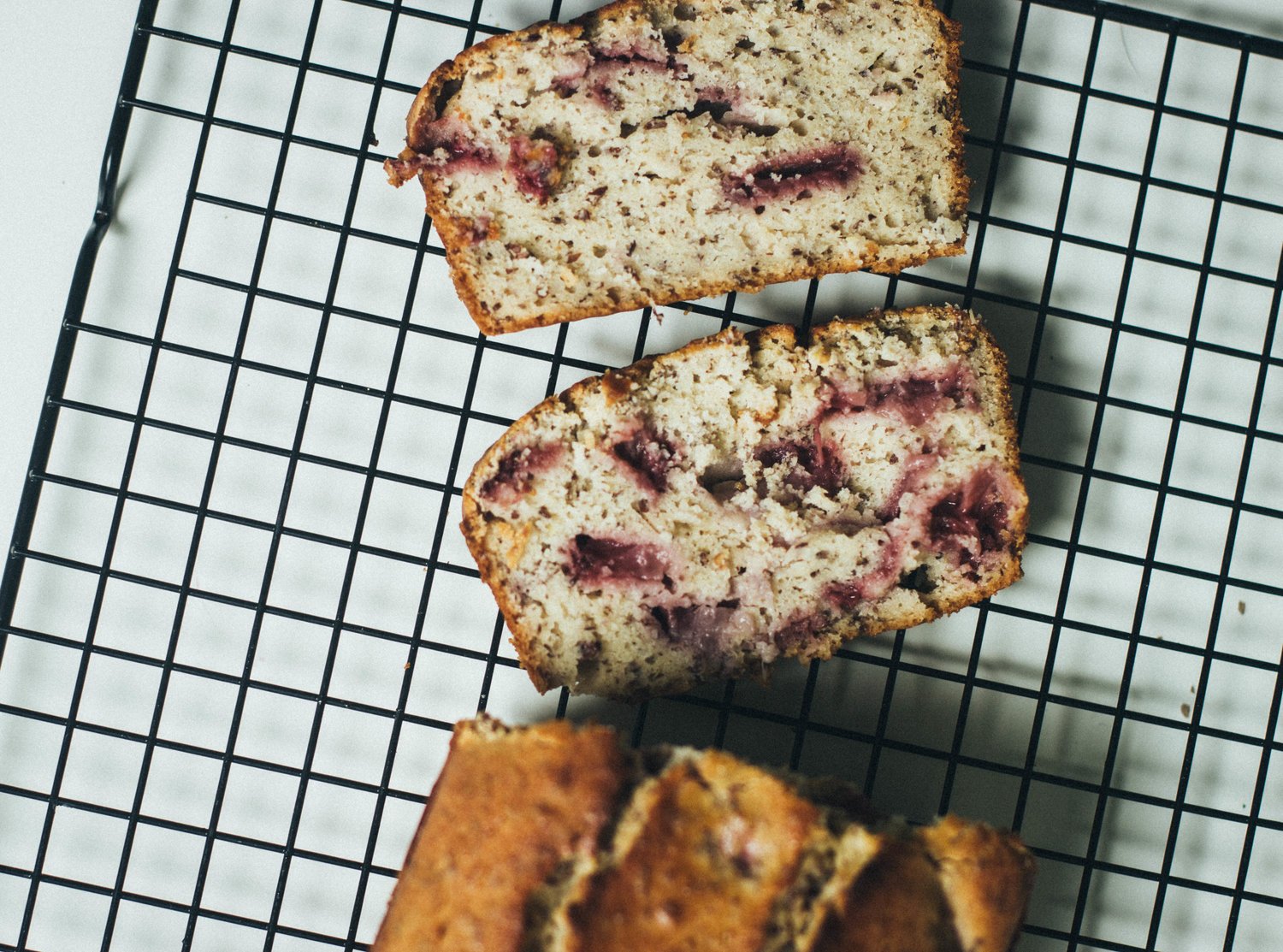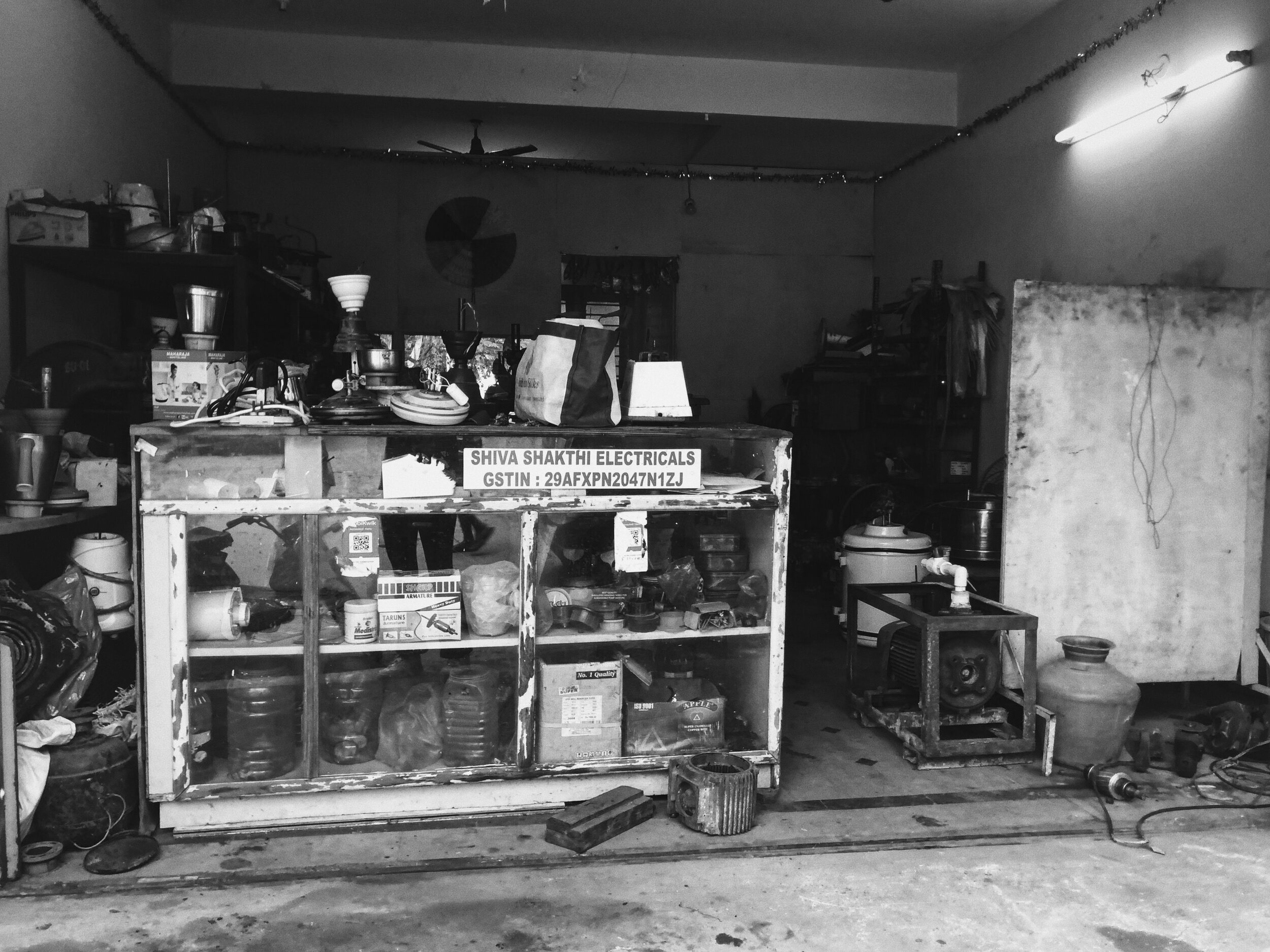among dandelions and apple blossom | Lower Normandy
/Our rental was a barn, approached by a long gravel driveway; a tumbledown farmhouse to its right and rich, green pasture to its left. There was a small patch of woodland in the garden, a bit like a spinney, blossoming apple trees and a plastic swing strung up between two trunks. The fencing was simple post and rail, the kind used to keep cattle in place. I'd come out into the garden, early morning and hear the cows in the nearby fields, a soft cough or snort, the scuff of a hoof. The silence was deafening and dawn was on its way, but there were still thousands of stars and a white moon suspended just above the house. The dogs' noses were covered in dew, it showed on the tips of my shoes and our breath made thick silver clouds. We were standing by the wooden fence, looking out over the darkened countryside, over the crests of hills that had seen some of the bloodiest battles in French history.
The pain, the mud, the landing beaches. Everyone knows Normandy, it has a special place in the heart of most Americans and the English. But we were in the department of the Orne, in peaceful springtime, a time of revival. Where French countryside is at its most bucolic, and the classically rolling fields were pockmarked with yellow dandelions that were the first to salute the re-emerging sun. There were leggy colts grazing and curious lambs peeping through fences, verdant green lettuce leaves at the market. We arrived on a balmy spring day, the French were clogging up the autoroutes near Rouen, headed to the coast at Le Havre, and we diverged on an almost empty stretch of road that took us into the green heartland where little had changed from the time the Allies had stormed through. We rented a barn conversion on an unnamed, unmarked lane and we wandered through still-life villages built around a single, stone church; market towns with old squares and boulangaries where the locals congregated. There were forested tracks with two options when our car met a tractor head-on: reverse a few miles or take a tumble down steep sides to join the cows grazing where a stream babbled through. I had been expecting a flat, undisrupted landscape, the kind of topography for digging trenches, but in Lower Normandy the terrain was satisfying hilly. Not so steep that we were always climbing, but enough that there were views stretching for miles, a mélange of earth tones, browns interrupted by an unexpected shock of yellow from the mustard flowers, the verdure dotted with white; cattle, scattered around crumbling farmhouses; daisies on a suburban lawn.
This area of Normandy is a cow stronghold. Every part of France has its trucks - the grain haulage engines in the Loire, the old American-style timber trucks in forested Burgundy, and here, diary tankers. Even the smallest farms seemed to have a few girls, chewing the cud contentedly in fields far bigger than any British cow could've imagined. We were at the supermarché, looking for free range eggs, which we couldn't find, but figured in this region at least, the concept of caged birds didn't even exist. At the market there was local cauliflower bigger than footballs, grassy asparagus spears still wet from harvest, apples proudly marked as being Francaise. We weren't far from Calvados country - there isn't much wine in this area, but rather the apple liquor and cidre normande. The trade-off was worth it for the miles of orchards and the break-away trees that watched over the winding roads like sentries. It was springtime and the blossom made that clear; the flowers bloomed in great clusters of pastel, swirled in the chilly breeze and settled in a layer of childish bubblegum to downy white. The tiny, ancient Citroens that sped along the quiet stretches of tarmac had pooled petals under their windscreen wipers, the fallen flowers decorated the landscape like confetti at a wedding. A marriage between ground that had felt the footsteps of William the Conqueror's army, had given under the weight of tanks and a scene that could now be the poster child of mellow, provincial French living.
It was simple, down to earth, and steady. Our Audi stuck out like a pretentious sore thumb among the rickety cars in any town we visited, farmhouses had been renovated just enough, tractors looked third generation but well loved. Any barn that had new double glazing was owned by a foreigner, but even those were enjoyably few. I was struck, initially, by the huge areas of pasture that were well fenced, with solid wooden rails, divided into neat squares. The houses that went with them were refurbished but in the old style, oozing class. Then I saw that each pasture had an outbuilding - a foaling booth, and to my horse-mad eyes, it all fit into place. Lower Normandy is home to the Haras du Pin, one of the national studs of France, where French racehorses are bred. The studs - haras - (or, according to my mum and sister "the harass") were the more prosperous farms and they too were dotted along country roads. We found one where the equine residents were close to the road and stopped to take photos, a group of four extremely elegant young horses, perhaps yearlings. Reserved but curious, polite at a distance, like the French farmers who'd give us a curt nod in their beat-up tractors. In the UK, Thoroughbreds this valuable would be under lock and key far from the road, but there was some sort of an understanding in France. A respect for each person's land, and a huge appreciation of the animals and plants that it nurtured. Pruney and Suzi were petted; they could go everywhere, the French love their dogs. Our girls walked through the grounds of William the Conqueror's fort, I scrambled along the battlements where the archers would've hung out, church bells rang from a cathedral that lost its steeple to bombing, and a man disappeared into the tourist office with his Beagle puppy.
Every time I visit France, I say the same thing. I need a French country house. This départment brought that thought more often than before. I could see myself with a barn here, somewhere on a crest where two hills met, among the dandelions and apple blossom and rugged farmers. Somewhere to go for simplicity and silence. If one day you find that I've disappeared from a desk job in a soulless European city, you'll find me somewhere like this. A countryside truce; a ceasefire from the constant scramble of powerful cars, traffic jams and filed nails. I'll be renovating a barn, a sourdough boule of pain intégrale in the oven, with swallows singing from the hedgerows, the dogs patrolling a rambling garden, and a couple of retired racehorses grazing green pasture. Enfin de la paix, for sure.













